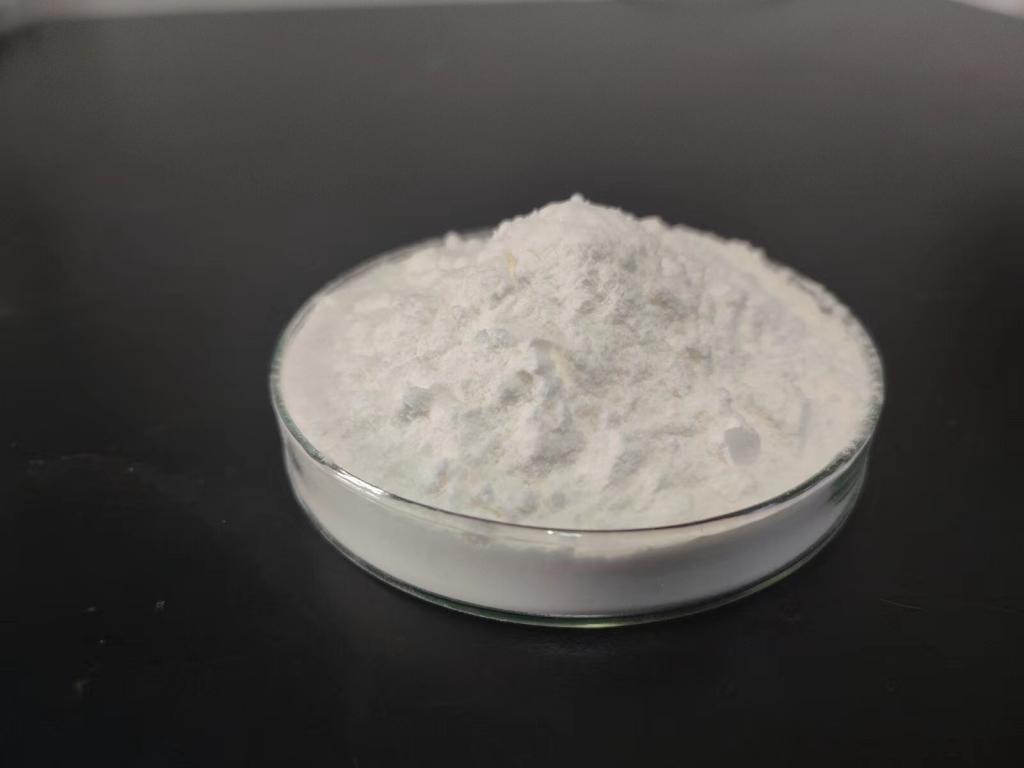Tel:+8618231198596

News
 CONTACT
CONTACT
 CONTACT
CONTACT
- Linkman:Linda Yao
- Tel: +8618231198596
- Email:linda.yao@dcpharma.cn
- Linkman:CHARLES.WANG
- Department:Overseas
- Tel: 0086 0311-85537378 0086 0311-85539701
News
Current Position:
Home >
News
>ε-Polylysine hydrochloride's versatility extends to various industries.
ε-Polylysine hydrochloride's versatility extends to various industries.
TIME:2024-03-29
Understanding ε-Polylysine Hydrochloride:
ε-Polylysine hydrochloride is a cationic homopolymer composed of lysine units linked by peptide bonds. It is produced through fermentation by certain strains of bacteria, notably Streptomyces albulus. This biopolymer is water-soluble, biodegradable, and non-toxic, making it suitable for a wide range of applications across different industries.
Applications in Food Industry:
Preservation: One of the primary applications of ε-polylysine hydrochloride in the food industry is as a natural preservative. Its antimicrobial properties inhibit the growth of spoilage microorganisms and foodborne pathogens, thereby extending the shelf life of various food products including meat, seafood, dairy, and baked goods.
Food Safety: ε-Polylysine hydrochloride contributes to food safety by controlling the proliferation of pathogenic bacteria such as Salmonella, Escherichia coli, and Listeria monocytogenes. Its use as a food preservative helps minimize the risk of foodborne illnesses and enhances consumer confidence in the safety of processed foods.
Flavor Enhancement: In addition to its antimicrobial properties, ε-polylysine hydrochloride is known to stabilize food emulsions and enhance flavor retention in processed foods. It helps maintain the sensory attributes and overall quality of food products, improving their palatability and consumer acceptance.
Applications in Pharmaceuticals:
Antimicrobial Agent: ε-Polylysine hydrochloride exhibits broad-spectrum antimicrobial activity against bacteria, fungi, and some viruses. In pharmaceutical formulations, it serves as a preservative to prevent microbial contamination and ensure the stability and safety of drugs, vaccines, and topical preparations.
Drug Delivery: The biocompatibility and biodegradability of ε-polylysine hydrochloride make it suitable for drug delivery applications. It can be used as a carrier or encapsulating agent for controlled release formulations, enabling targeted delivery of therapeutic agents and improving drug efficacy.
Wound Healing: ε-Polylysine hydrochloride has been investigated for its potential in wound healing applications. Its antimicrobial properties help prevent infections in wounds, while its biocompatibility and non-toxicity make it suitable for use in wound dressings and tissue engineering scaffolds.
Applications in Agriculture:
Crop Protection: ε-Polylysine hydrochloride shows promise as a natural alternative to chemical pesticides in crop protection. Its antimicrobial activity helps control fungal and bacterial diseases in plants, reducing the need for synthetic fungicides and bactericides while minimizing environmental impact.
Soil Amendment: When applied to agricultural soils, ε-polylysine hydrochloride can promote soil health and plant growth by suppressing soil-borne pathogens and enhancing beneficial microbial populations. It contributes to sustainable agriculture practices by improving soil fertility and reducing reliance on chemical inputs.
Seed Treatment: Treating seeds with ε-polylysine hydrochloride coatings or solutions enhances seed germination rates and protects seedlings from soil-borne pathogens. This application improves crop establishment and early growth, leading to higher yields and better overall plant health.
Benefits and Implications:
Natural and Sustainable: ε-Polylysine hydrochloride is derived from natural sources and offers a sustainable alternative to synthetic chemicals in various industries. Its biodegradability and low environmental impact make it compatible with eco-friendly manufacturing processes and green product formulations.
Food Safety and Quality: In the food industry, ε-polylysine hydrochloride contributes to food safety by inhibiting microbial growth and reducing the risk of foodborne illnesses. Its use as a natural preservative helps maintain the freshness and quality of food products, extending their shelf life without the need for synthetic additives.
Health and Wellness: In pharmaceutical applications, ε-polylysine hydrochloride plays a role in drug stability, controlled release, and wound healing. Its biocompatibility and non-toxicity make it suitable for use in medical devices and formulations intended for human health and wellness.
Agricultural Sustainability: In agriculture, ε-polylysine hydrochloride supports sustainable crop production by reducing reliance on chemical pesticides, improving soil health, and promoting plant growth. Its eco-friendly profile aligns with the principles of organic and regenerative farming, contributing to environmental conservation and resource efficiency.
Challenges and Considerations:
Formulation and Stability: Developing stable formulations of ε-polylysine hydrochloride for different applications can be challenging due to its susceptibility to pH, temperature, and enzymatic degradation. Formulation optimization is necessary to ensure its efficacy and shelf life in various product formulations.
Regulatory Approval: Regulatory requirements for ε-polylysine hydrochloride vary across different industries and regions. Obtaining regulatory approval for its use in food, pharmaceuticals, and agriculture requires compliance with safety standards, labeling regulations, and toxicological assessments.
Consumer Acceptance: Consumer perception and acceptance of ε-polylysine hydrochloride-treated products may vary depending on factors such as labeling transparency, perceived safety, and familiarity with the ingredient. Education and communication efforts are needed to inform consumers about the benefits and safety of ε-polylysine hydrochloride in different applications.
Future Directions:
Research and Innovation: Continued research into the properties, applications, and potential benefits of ε-polylysine hydrochloride across different industries is essential for unlocking its full potential and addressing existing challenges.
Collaboration and Partnerships: Collaboration among researchers, industry stakeholders, regulatory agencies, and consumer advocacy groups can facilitate knowledge exchange, technology transfer, and regulatory harmonization efforts related to ε-polylysine hydrochloride.
Market Expansion: Exploring new markets and applications for ε-polylysine hydrochloride, such as cosmetics, personal care products, and environmental remediation, can diversify its usage and create new opportunities for innovation and growth.
Conclusion:
ε-Polylysine hydrochloride's versatility and unique properties make it a valuable ingredient across multiple industries, including food, pharmaceuticals, and agriculture. From preserving food freshness and enhancing drug stability to promoting soil health and crop protection, its applications span a wide range of products and processes. As industries continue to prioritize sustainability, safety, and innovation, ε-polylysine hydrochloride holds promise as a natural and sustainable solution that aligns with evolving consumer preferences and regulatory requirements. Through collaborative research, innovation, and market development efforts, ε-polylysine hydrochloride can contribute to the advancement of sustainable practices and the creation of healthier, safer, and more environmentally friendly products for generations to come.
- Tel:+8618231198596
- Whatsapp:18231198596
- Chat With Skype







